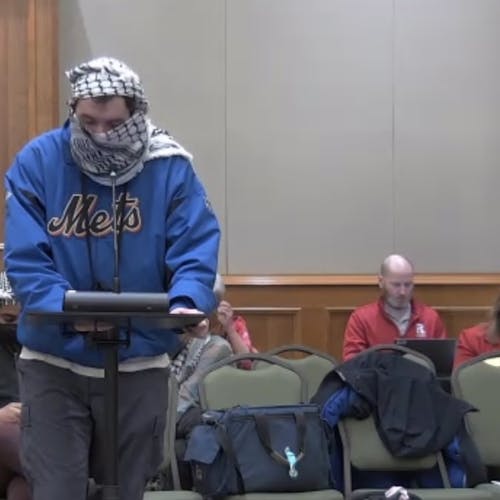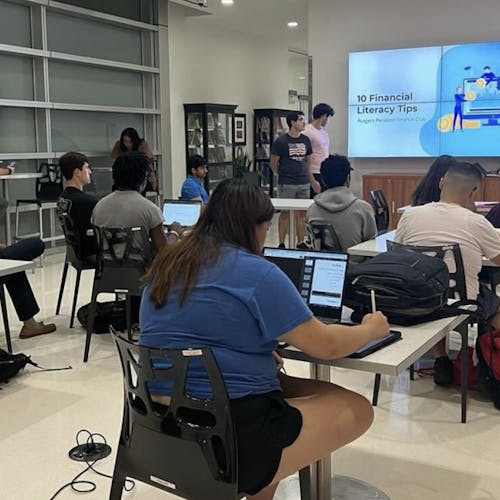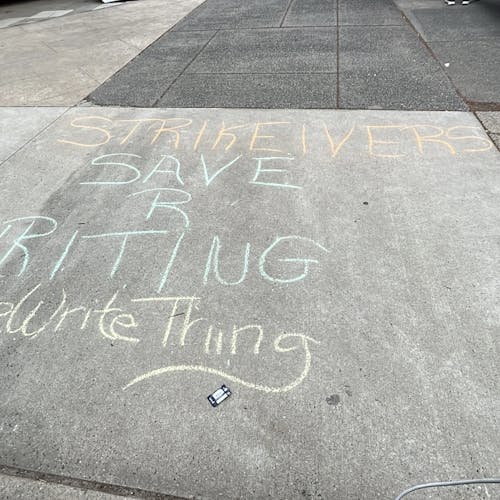Amani Al-Khatahtbeh, Rutgers alumna, announces Congressional campaign

Amani Al-Khatahtbeh, founder and CEO of MuslimGirl and a Rutgers alumna, is running for Congress to represent New Jersey’s 6th Congressional District. She is challenging incumbent Rep. Frank Pallone (D-N.J.) in the primary election on June 2.
“I always have been extremely passionate about politics and especially the way that politics impacts the lives of underrepresented, marginalized voices like mine growing up, especially having that exposure to the way that policies were being shaped where I grew up and how they played out in another part of the world,” Al-Khatahtbeh said. “Just witnessing that with my own eyes and also feeling the ramifications of that, I think always really inspired me to want to make a change and make a difference in our political landscape.”
Being the daughter of a Jordanian immigrant and a Palestinian refugee, Al-Khatahtbeh said she was exposed to inequality and anti-Muslim prejudice growing up in post-9/11 America.
She moved to Jordan with her family for a short period of time at age 13 and said living overseas showed her how the American media's portrayal of Muslims affected the lives of Muslims not only in the U.S., but also those living abroad.
“That became the first time that I saw the stark contrast between the way that we were discussing these issues here in Western media versus what the reality was on the ground and the way that we were representing a group of people who really, at the end of the day, were just like us and wanted the same things for themselves and for their children, for their futures that we did,” she said.
To combat the lack of representation in the media, Al-Khatahtbeh said she founded MuslimGirl when she was a senior in high school. During her time at Rutgers, she expanded the site and started the first MuslimGirl collegiate chapter to bring different communities together through events on campus. In 2016, Al-Khatahtbeh and MuslimGirl landed on Forbes’ 30 Under 30 media list, making it the first Muslim company to do so.
“The whole purpose behind creating MuslimGirl was to create a platform on our terms, where we can make sure that our voices are represented in the conversations directly impacting us,” she said.
At Rutgers, Al-Khatahtbeh was the first Arab-American Muslim woman to hold the role of Opinions Editor at The Daily Targum. She said she also helped organize the #NoRice protest movement in 2014, which blocked Condoleezza Rice from being the University’s commencement speaker, citing her connection to the Iraq War, the Targum reported.
Al-Khatahtbeh graduated in 2014 and double majored in Political Science and Middle Eastern Studies and double minored in Women’s and Gender Studies and International Relations. She said her time at Rutgers helped learn how to use her voice to advocate for different political issues.
Al-Khatahtbeh said her campaign platform is centered around issues Americans face on a day-to-day basis, especially Americans who are underrepresented in politics. She said the current coronavirus disease (COVID-19) outbreak and the government’s response shows how past policies have failed.
“Especially in this moment of a global crisis, of a pandemic, it really demands new leadership and policies that preserve the health, the safety, the livelihoods of the most vulnerable Americans in our country,” she said. “That's why I'm running to really champion the Green New Deal, Medicare For All (and) student debt forgiveness — policies that I think are going to help make it easier for our generation and future generations to really heal from what we have been going through.”
She said Pallone helped block the Green New Deal from passing through his role as chair of the House Energy and Commerce Committee and that he is against Medicare For All.
“He's been in office for so long and hasn't done enough to really serve, not only his constituents, but also just the American people on where we need to see ourselves on these issues, and so I feel like it's time for us to have that new leadership,” Al-Khatahtbeh said.
Growing up in Central Jersey has helped her see what sort of issues matter most to the constituents, she said. Additionally, the 6th District is home to Rutgers, which Al-Khatahtbeh said is one of the most diverse colleges in America. At just 27 years old, she said she is better suited to represent this younger demographic.
“The student body themselves has been forming a coalition of organizations that have been pushing for the policies they want to see represented in Congress the way that we need them to be,” Al-Khatahtbeh said. “I think that makes me more in tune and in touch with the voices that deserve to have that type of visibility that haven't really been heard in a very long time.”
In addition to being one of the youngest candidates in history, Al-Khatahtbeh said she is the first Muslim woman to run for federal office in New Jersey.
With the COVID-19 crisis preventing most New Jerseyans from leaving their homes or attending gatherings, the Targum previously reported, those running for office cannot physically campaign or hold events for an indefinite amount of time. Al-Khatahtbeh said social media has helped create a dialogue around many political issues and believes it will be key for advancing her campaign.
“I feel very confident that even in the midst of a crisis like this, we're going to be able to utilize social media and technology in order to build those connections in a way that really has never been done before,” she said.
Al-Khatahtbeh said she hopes her campaign shows other marginalized groups that they can take part in the political system.
“(My campaign) symbolizes that if I can do it, literally anybody can do it,” she said. “It symbolizes that it's possible for those of us that feel like we are on the fringes of our society, that have been made to feel like we don't belong — even when this is the only home we've ever known — that we have a say. We have a say too, and our voices do matter.”



